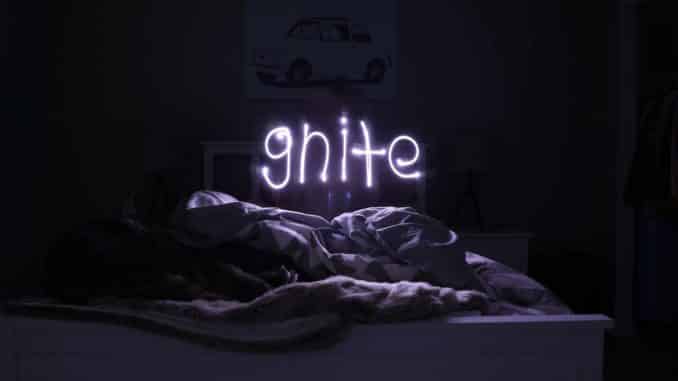
Sleep is essential to the proper functioning of the mind and body. The hours spent in a state of rest allow your body to regenerate crucial functions and eliminate daily toxins absorbed throughout the day.
The Importance Of Sleep
Getting a good night’s sleep can be difficult after a long and stressful week but it’s extremely important in order to be able to keep functioning at a high level.
Studies show that 7 or more hours of sleep a night is necessary to being fully rested. Any less on a regular basis can lead to mental and physical burn out, skin conditions, as well as elevated stress and anxiety.
Dr. Philip German, an assistant professor of psychiatry with the University of Pennsylvania asserts that during stage three of the sleep cycle, blood pressure drops and blood moves to the muscles and the tissues. During this period of time, tissue damage is repaired. Additionally, human growth hormones are secreted by the body, which help promote healthy skin, hair and provide a boost for the following day.
Mental wellbeing is connected to the amount of sleep you get each night. Research has shown that the brain is 10 times more active in flushing out toxic waste products during the sleep cycle. Ridding waste from cells within the brain helps to ensure that your mental cognition is performing at its peak while you are awake.
Researcher Maiken Nedergaard, M.D., D.M.Sc., the co-director of the Center for Translational Neuromedicine at the University of Rochester, asserts that restorative sleep is the direct result of the clearance of biochemical by-products produced during neural activity. These byproducts accumulate in the brain tissue while we are functioning during a busy day, These toxins are flushed out of the brain through the cerebral spinal fluid and into the circulatory system.
If you struggle with falling asleep or staying asleep, here are a few strategies that will help you maintain a restful night’s sleep:
-
Restrict Your Caffeine Consumption
Caffeine can be a powerful stimulant when taken in concentrated quantities. It is known as the most popular drug in the world. It blocks the chemicals created in the body that induce sleep and increases the production of adrenaline by the adrenal glands. The Sleep Foundation stresses that consuming more than six 8 oz. cups of coffee is considered excessive.
A moderate amount of coffee intake is considered three 8 oz cups in a day. Caffeinated beverages of any kind including cola, certain teas and energy drinks should not be consumed within 3 hours of your bedtime.
-
Put Away Your Smart Devices And Embrace The Darkness
The human eye has photoreceptors that detect various amounts of light. A natural decrease in light at night affects the circadian rhythms produced within the hypothalamus of the brain. The Circadian rhythm regulates the wake and sleep cycle. Never sleep with a light or lamp on as any excess of light will make it difficult to fall asleep and stay asleep.
Light emitted from electronic devices such as smartphones and computers also stimulate the brain to stay awake and active. The light that these devices emit also affects your circadian rhythm. Turn off all devices at least one hour before bedtime and make sure they are closed or turned over to avoid notifications during the night.
-
Exercise Regularly
Exercising on a daily basis will help you sleep like a baby. Exercise helps the cells within the body clear out toxins, improves the performance of the heart, improves blood flow and helps oxygenate the blood. Exercise also relieves anxiety and tension in the muscles, calms fear, and helps you to relax. Good examples are Tai Chi and restorative yoga. They are slow paced exercises that will help you wind down before going to bed.
-
Herbal Remedies to Promote Sleep and Reduce Stress and Anxiety
Stress and anxiety can contribute to many sleepless nights. The use of herbal remedies is a natural way to soothe and calm your mind and body before going to bed. Ancient remedies focused on plants found in nature have promoted the relief of stress and anxiety for thousands of years. The best known examples include herbs such as lavender, mint, chamomile, valerian, kava kava and St. John’s wort.
Lavender is one of the best known and versatile herbs for inducing sleep. Adding a few drops of lavender essential oil into a warm bath or using herbal soap infused with lavender will help calm your nerves and ensure a good night’s sleep. You can also spray your pillow and bed sheets with lavender essential oil that has been diluted in water.
-
Stay Away from Sleeping Pills
Pills and medications designed to help you sleep are a waste of time and money. The possible side effects of medication for treating insomnia, such as Ambien, are worse than the actual condition they are trying to treat.
The side effects include dizziness, a drugged feeling, drowsiness during the day, sore throat, dry mouth, loss of coordination, headache, constipation, nausea, upset stomach and many others. Over time they may cause a physical dependency to the drug. They can also cause serious breathing problems and can be fatal if used by people who have asthma, COPD and emphysema.
-
Melatonin and Tryptophan Supplements
Sometimes insomnia or poor sleep patterns are caused by imbalances in melatonin and tryptophan in the brain. When not enough of these two neurochemicals are produced in the brain, chronic sleep disturbances may occur.
Taking melatonin and tryptophan supplements may help. They can relieve some, if not all, of the symptoms of insomnia. Always speak with your doctor or physician first before taking any supplements.

